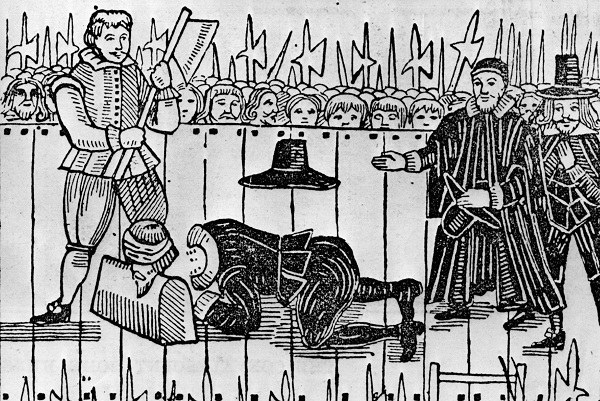Iain Martin has written a cracking piece for the Telegraph entitled: ‘The coming battle with the EU is about sovereignty.’ Iain recommends a new play, 55 Days, which tells the story of the aftermath of the English Civil Wars and the execution of Charles I. He was gripped by this tale of power and politics, and asked Tristram Hunt and Douglas Carswell why the civil wars continue to resonate.
Carswell, in his new book, The End of Politics: And the birth of i-democracy, argues that the 2010 intake, on both sides of the House, has revived parliament. MPs are defying the whips to assert their constituents’ views. The MPs are doing this, Carswell says, because the internet has brought them closer to their constituents.
Carswell equates himself and his colleagues with the heroes of the English Revolution; but to my eyes Carswell has anarchistic tendencies. The End of Politics is a profoundly anti-elitist book, full of rousing condemnations of administrators whose arrogance led them to order human affairs ineptly when such affairs are better ordered, Carswell says, by free individuals and the free market. Far from being a plutocrat like Oliver Cromwell, Carswell sounds more like a post-modern Leveller or a Ranter to me.
Either way, parliament does seem to be re-asserting itself; the recent rebellions over prisoner voting and the EU budget were expressions of its self-confidence against unaccountable, multi-lateral institutions such as the European Union and the European Court of Human Rights. Iain says that the financial crash and the ensuing political crisis have made us face the question ‘at the heart of 55 Days: where does power ultimately lie?’ He favours parliamentary sovereignty as a starting point.
Yet 55 Days poses another question, or at least another theme: politics as a messy, unplanned business. At one point in the drama, Cromwell says: ‘we are inventing a country’. Cromwell, who Milton famously described as ‘our chief of men’, has evolved into a mythic being over the ages. The Victorian historian Thomas Carlyle wrote of him, ‘I confess I have an interest in this Mr Cromwell; and indeed, if truth must be said, in him alone. The rest are historical, dead to me; but he is epic, still living. Hail to thee, thou strong one; hail across the longdrawn funeral-aisle and night of time!’
Yet some of Cromwell’s contemporaries were not so enamoured. Richard Baxter, a pastor invited by Cromwell to be chaplain to the Ironsides regiment, wrote of him: ‘he thought secrecy a virtue, and dissimulation no vice, and simulation, that is in plain English, a lie, or perfidiousness to be tolerable fault in case of necessity.’ Cromwell was, as the Earl of Clarendon dubbed him in The History of the Great Rebellion, ‘a brave bad man’, the ultimate political animal.
Douglas Carswell’s The End of Politics is a valuable read for anyone interested in the role that the internet might play in the renewal of representative democracy; but his optimistic conclusions recall Stalin’s retort to H.G. Wells – a man who, like Carswell, believed in the transformative power of technology (albeit to totally different ends) – that there is such a thing as politics. The ordering of affairs, both private and public, is not merely a matter of mathematics or algorithms. There is identity, imperfection and irrationality; therefore there is choice, confection and compromise.
Cromwell and 55 Days remind us that politics is a mess of pragmatism and expedience, especially at times of uncertainty. Such times require us to revisit what we mean by democracy; and last week’s shambolic elections appear to make that requirement even more pressing. I respectfully disagree with Iain Martin. The question facing us is not: where does power ultimately lie? It is: where should ultimately power lie?






Comments